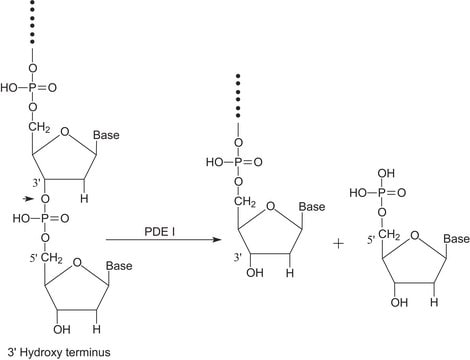P4978
Phosphatase, Alkaline from calf intestine
buffered aqueous glycerol solution
Synonym(s):
CIAP, CIP, Orthophosphoric-monoester phosphohydrolase (alkaline optimum)
About This Item
Recommended Products
grade
for molecular biology
form
buffered aqueous glycerol solution
mol wt
~80 kDa
concentration
≥10,000 units/mL
UniProt accession no.
foreign activity
DNase, RNase, none detected
shipped in
wet ice
storage temp.
−20°C
Gene Information
cow ... ALPI(280993)
Looking for similar products? Visit Product Comparison Guide
General description
Application
Components
Unit Definition
Other Notes
inhibitor
related product
substrate
Storage Class
10 - Combustible liquids
wgk_germany
WGK 1
flash_point_f
Not applicable
flash_point_c
Not applicable
Certificates of Analysis (COA)
Search for Certificates of Analysis (COA) by entering the products Lot/Batch Number. Lot and Batch Numbers can be found on a product’s label following the words ‘Lot’ or ‘Batch’.
Already Own This Product?
Find documentation for the products that you have recently purchased in the Document Library.
Our team of scientists has experience in all areas of research including Life Science, Material Science, Chemical Synthesis, Chromatography, Analytical and many others.
Contact Technical Service


